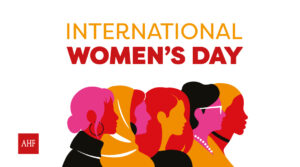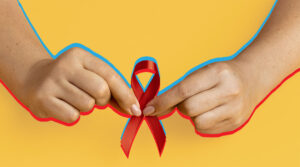In recent years, research has shown that people with HIV experience accelerated cellular aging, regardless of whether or not they are on antiretroviral therapy.
Unlike those without HIV, people with the virus appear to have age-related conditions and diseases long before the general population.
For example, heart disease, some cancers, and cognitive problems (such as dementia) appear to occur earlier in people living with HIV, although it is also fair to say that factors such as diet, physical activity, alcohol and tobacco use, Use of illegal drugs or genetics also influence the development of certain diseases.
Biased research
When the HIV pandemic broke out in the 1980s, those affected were dying rapidly, with no hope of reaching old age. Later, when antiretroviral treatments were invented in 1996, it was known that these people’s lives could be prolonged, but it was not known by how much.
Today, 40 years after the start of this pandemic, the scientific community has confirmed that those with HIV can aspire to a life expectancy very similar to that of people without HIV, but the conditions under which aging occurs are barely being studied.
Unfortunately, the first people involved in studies of this type were essentially white men, which did not reflect what could happen in black, Latino or mixed-race populations, or in the group of women who, in the countries hardest hit by HIV in Africa They are the most affected.
Science for life
That’s why Stephanie Shiau, MD, of the Rutgers School of Public Health, set out to analyze markers of aging in 69 black people with HIV in New York City who were 60 years of age or older. .
These markers are located in blood samples and are related to the modification of the DNA of the cells, whose changes establish a pattern that allows estimating how fast aging is taking place, as explained by the specialized HIV website TheBody.com.
Thus, Dr. Shiau compared the people in her study with another group of black people with the same age, but without HIV. With this, he found that the same thing happened in the previously studied white population: people with HIV had markers six to seven years older than their own biological age. For example, a 65-year-old study participant would have markers of a 72-year-old.
One of the findings that the researcher highlights is the verification of something that was already known: it is important that people with HIV start antiretroviral treatment as soon as possible. Although this does not eliminate accelerated aging, it can slow it down, according to some research.
How to delay accelerated aging?
Another important point Shiau makes is—fortunately or unfortunately—something very well known: even though people with HIV age faster than those without it, there are several lifestyle changes that can help mitigate cell damage over time weather.
The recommendations to stop the aging process early are very similar to those given to lead a healthy life:
– Exercise regularly: even something as simple as a daily walk works
– Eating healthy: reduce sugar, fried foods and red meat, and eat more fruits, vegetables, lean proteins and “good” fats, such as nuts or avocado
– Eliminate, or at least reduce, the consumption of tobacco, alcohol and other drugs
If none of these suggestions are already in your lifestyle, it can be tricky trying to integrate them all at once. If this is your situation, talk to your medical team and ask for advice to adopt, for example, some changes in your diet that can lead you to improve your nutrition.
Also, remember that sticking to your treatment and going to your control appointments will allow you to have HIV under control and lead a fuller and healthier life.
If you already have an HIV diagnosis and you still haven’t started your treatment, or if you suspended it and want to resume it, remember that at AHF Latin America and the Caribbean we can help you. Locate our offices closest to you and find out about our services, we are in 11 countries in the region.






